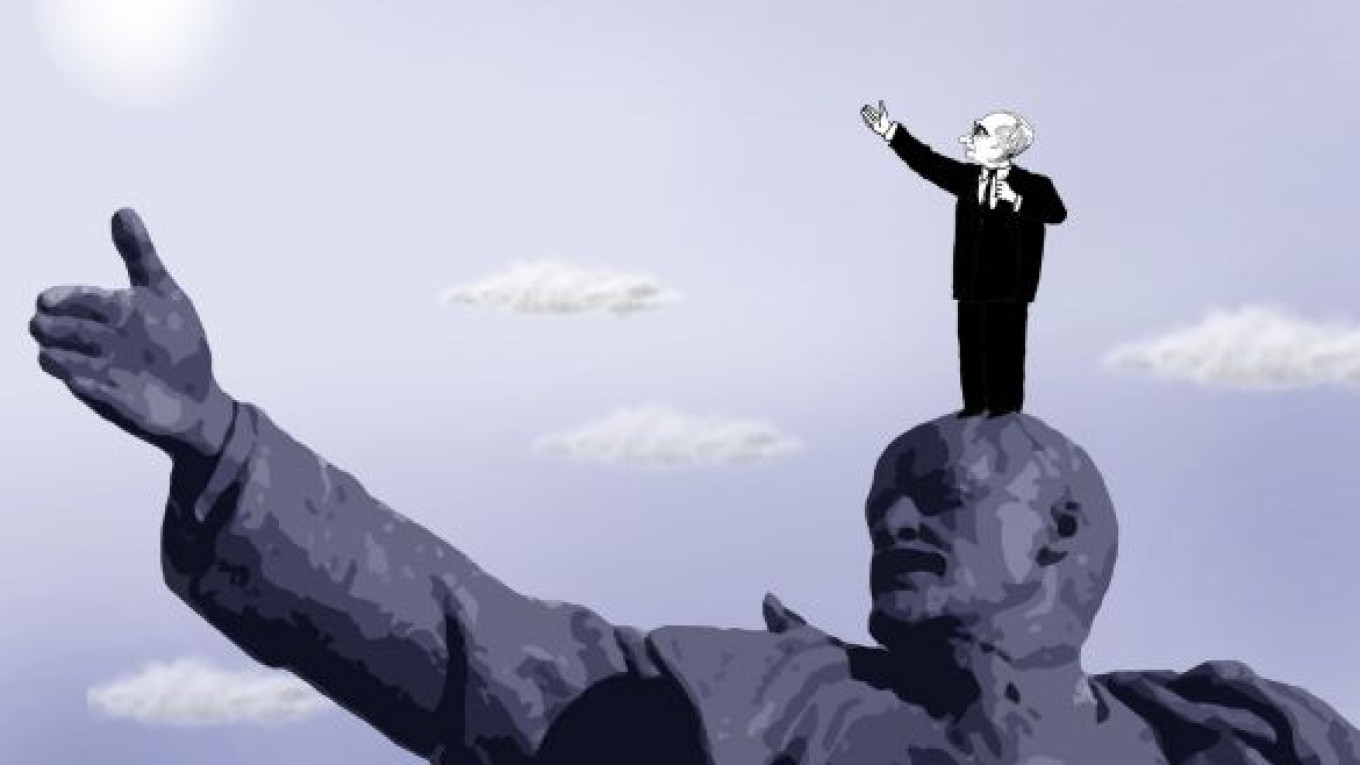Recent developments in Russia have evoked memories of a famous line by Vladimir Lenin: "The courts should not do away with terror … but should give it foundation and legality, clearly, honestly and without embellishments." In just the six months since he reseated himself as president, Vladimir Putin has been busy creating a legislative framework that might make Lenin proud.
Under the Soviet legal system, the court was an arm of the government, a system designed to protect the state from an individual, rather than to protect an individual from the state. Treason was defined in the Soviet Criminal Code as being part of a public group that acted "under the influence" of the bourgeoisie. This all sounds eerily similar to trends resurfacing in today's Russia, except that Putin has been less candid about what his framework could enable, beyond describing a need for "stability." More likely he wants to instill fear, albeit without the terror of the past. He wants a more civilized, acceptable reinterpretation of the Soviet period, although that is hardly consolation for Russia's beleaguered civil society and opposition.
Russians are afraid — and for good reason. Almost any conversation between Russian citizens and representatives of foreign organizations on human rights issues could now be construed by the courts as treasonous, with jail sentences of up to 20 years. The definition of espionage in the treason law, which went into effect on Wednesday, includes "furnishing financial, material, technical, consultative or other help to a foreign state, or international or foreign organization." This absurdly broad definition is already being applied in scary ways. Ivan Moseyev was charged earlier this week with treason by Moscow for allegedly destabilizing the frozen Arkhangelsk region through his studies of an ancient people who had ties to Norway.
Putin is creating a system where foreigners are the enemy and Russians are potential collaborators. Both need to be closely watched and controlled.
In July, Putin signed the "foreign agent" law, in which fundamental freedoms could be considered a crime from many angles. Whether treating HIV/AIDs, promoting environmental protection or monitoring elections and human rights, any Russian who receives foreign funds for such activity must be branded a "foreign agent" or risk severe fines and jail time.
In addition, the extremism law has been in force for several years. It is intentionally vague to enable the government to crack down on dissent and stoke xenophobia. In this current climate of fear and distrust, it is being flexed for wider use.
The pursuit of stability, at least as Putin defines it, is used as a rationale for repression. Those who abuse human rights are given impunity, and those who seek to protect human rights are in official danger. In such a climate, it is not surprising that there is an increase in displays of violent intolerance.
Last week, Freedom House held a conference in Washington comparing anti-extremism laws in Russia, China, and Pakistan. Even among this distinguished group, Russia's anti-extremism legislation is notably repressive.
Since the law creating a secret Internet blacklist came into effect on Nov. 1, more than 180 sites have been banned. Supposedly passed to protect children from offensive content, the law was hastily and sloppily written and gives the government wide leeway to shut down websites without court orders. The most pernicious part of the blacklist law is the inclusion of materials that are prohibited for distribution in Russia, including materials ruled extremist by courts or other materials that are prohibited by court decisions. These court decisions are often based on weak "expertise" and rammed through often incompetent, Kremlin-loyal courts. Before, court decisions affected only a local region, but now, under the new law, they will be blocked nationwide.
These new laws in Russia give rise to some unlikely targets. A group of conservative Orthodox believers, presumably inspired by the anti-blasphemy rage that has taken over the country and State Duma after the Pussy Riot verdict, have covered up Apple's iconic ?bitten-apple logo with a cross to remove any association with original sin. The true sin, however, is Putin's effort to cloak repression in the guise of legislation and rule of law. A growing number of Russians, however, are demonstrating that they are not buying into his Leninist imitation.
David Kramer is president of Freedom House in Washington. Susan Corke is director for Eurasian Programs at Freedom House.
Related articles:
A Message from The Moscow Times:
Dear readers,
We are facing unprecedented challenges. Russia's Prosecutor General's Office has designated The Moscow Times as an "undesirable" organization, criminalizing our work and putting our staff at risk of prosecution. This follows our earlier unjust labeling as a "foreign agent."
These actions are direct attempts to silence independent journalism in Russia. The authorities claim our work "discredits the decisions of the Russian leadership." We see things differently: we strive to provide accurate, unbiased reporting on Russia.
We, the journalists of The Moscow Times, refuse to be silenced. But to continue our work, we need your help.
Your support, no matter how small, makes a world of difference. If you can, please support us monthly starting from just $2. It's quick to set up, and every contribution makes a significant impact.
By supporting The Moscow Times, you're defending open, independent journalism in the face of repression. Thank you for standing with us.
Remind me later.


